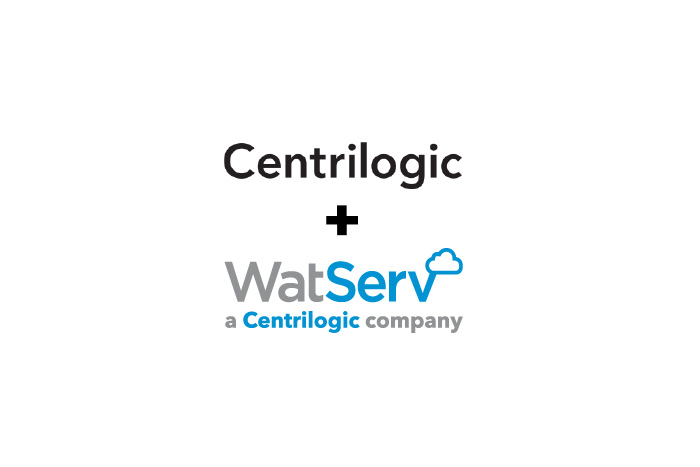Microsoft Azure Management: A Complete Overview
WatServ
May 12, 2022
In the post-COVID world, companies across all regions and industries are migrating to the public cloud at a fast pace.
While there are many public cloud options available – including AWS, Google Cloud Platform (GCP), IBM Cloud, Alibaba Cloud and more – Microsoft Azure is a well-established and popular choice.
But what is Microsoft Azure, and how does it work? What industries are leveraging it? And what are the options for managing it?
In this article we provide an overview of Microsoft Azure and what it can do for your business.

What is Microsoft Azure?
Azure is Microsoft’s public cloud platform. Over 95% of Fortune 500 companies currently use this service. Originally called Windows Azure, this cloud platform has a vast collection of services in a cloud environment that allows users to build, deploy and manage applications.
The solutions Azure provides include Infrastructure as a Service (IaaS), Platform as a Service (PaaS) and Software as a Service (SaaS).
To say that Microsoft Azure is a powerful tool is an understatement. The vast capacity and availability of applications that can be used with it is what makes it one of the most widely used public cloud platforms.
Microsoft Azure can be used for services such as analytics, virtual computing, storage, networking and many others, making Azure one of the most robust, secure and seamless cloud computing platforms available.
Similar to other cloud computing platforms, Azure is economical in that it works on a pay-per-use model, with discounts given for reserved instances. This makes it attractive to companies looking for flexibility and scalability, rather than being locked into one stagnant model.

How Does Microsoft Azure Work?
Like any cloud service, Azure works through a set of physical servers across the globe. In fact, it has a vast number of data centers around the world, meaning it can provide services to global audiences and is appropriate even for companies that have strict data residency requirements. In today’s remote and digital age, this is non-negotiable for many organizations.
Those collections of servers and networking hardware run a complex set of distributed applications. These applications orchestrate the operation and configuration of hardware and software, and are what makes Azure so powerful.
Microsoft Azure can be used to replace or supplement your on-premise servers and is an incredibly powerful and complex management platform capable of integrating with over 200 applications (and counting).
The power of Azure can seem daunting, so learning how Azure can be used for specific needs will help.
What Can You Do with Microsoft Azure?
Given Azure’s vast capabilities, its use cases are diverse – which is also what makes it such an appealing scalable and secure cloud platform. Here are a few of the more popular Azure products and capabilities.
Manage All APIs in One Place
Developing a modern API infrastructure is an important aspect for accelerating growth and digital transformation. Azure API Management provides a single place to manage all of an organization’s APIs. This enables a streamlined approach across hybrid, multi-cloud and on-premise environments. Companies choose this when they’re looking for a unified experience and the ability to deploy API gateways with APIs hosted in Azure and elsewhere.
Enhance and Implement Backup and Disaster Recovery
As a cloud-based server, Azure allows secure and reliable backup and disaster recovery programs.
Disaster recovery plans are crucial for a company’s success – and are often not considered until it’s too late. On-premises servers aren’t necessarily protected from all disasters. But as a cloud-based server, Azure Backup can be set to continually back up all your data, applications and other systems to multiple locations, repeatedly. This isn’t just one backup – its reiterated backups ensure one of your most valuable assets, your data, is always secure.
This is helpful in protecting against ransomware, as well as providing a cost effective way to centralize the management of backup policies.
Enhance Security and Protection
In today’s environment, security and protection is a top concern. Cybercrimes have increased since the beginning of 2020, and companies are moving quickly to ensure their data and operations are protected.
As a cloud-based system, Azure is arguably more secure than on-premises solutions. But it’s more than that. It also offers Azure Rights Management (Azure RMS) which is a service that helps protect your data and emails across all devices by using encryption, identity and authorization policies.
Supplement and Protect Your Active Directory
While this falls under security and protection, it bears mentioning on its own. Azure Active Directory can be used to seamlessly integrate with your active directory(AD), ensuring identity and access capabilities are smooth and risk-free.
This feature gives your DNS a global span so if you have multiple locations, Azure’s Active Directory Integration acts as your central management tool. It works across Mac, iOS cloud applications, Windows and Android, and is capable of multi-factor authentication for enhanced security.
What Industries is Azure Used For?
Azure is incredibly powerful with a multitude of capabilities. This naturally means there are a multitude of use-cases. Let’s look at a few.
Retail
Azure cloud-based technology can be used in nearly all aspects of the retail sector. Particularly now, as supply chains become more complex and bottlenecked, retailers have had to rely on creative solutions to ensure their products reach consumers.
Some ways Azure can be used in retail are:
- Supply chain management
- Innovative customer experiences
- Analysis of consumer behaviors
- Optimization of in-store operations
- Align operations across multiple store locations
- Ensure branding and customer experience is consistent across locations
Higher Education
It’s never been more important than it is now to make sure higher education is accessible to everyone. Educational institutions have had to adapt quickly during the pandemic, meaning all classrooms and educational systems have shifted to the cloud. Here’s how Azure helps with that:
- Helps institutions reimage a cloud-based campus experience
- Helps drive student engagement and innovation
- Helps students develop and implement AI in classroom settings
- Provides a platform where staff can capture data and incorporate it into a mobile setting
Manufacturing
The global manufacturing sector has faced unique challenges since the beginning of the pandemic, and there has never been a greater need for intelligent, secure and cloud-based solutions.
Azure can be used to improve all operations in the global manufacturing sector by:
- Enhancing transparency across supply chains
- Building business models that are innovative and solution-focused
- Connecting factory equipment that can predict risks
- Reducing manufacturing downtime
- Enabling AI systems
- Intelligently planning and optimizing inventory
- Protecting the safety of factory workers
Construction
Azure can help construction companies manage projects, from initial architecture and project planning, to execution and project management. It can do this by:
- Streamlining supply chain management
- Intelligently predicting and reducing on-site risks
- Enabling AI systems
- Reducing construction downtime
- Protecting the safety of on-site workers

How Can Your Company Manage Azure?
There are a lot of use cases for using Azure. But first, it’s important to explore how your company will manage Azure – in-house or through a managed service provider.
Managing Azure (and of course, all your data, security and protection, and disaster recovery planning) can be done in-house, but as with any data management systems, this can eat up a lot of labor costs. While the cloud-based platform is incredibly economical, managing it can be tricky.
In-House Cloud-Based Management
To migrate and manage your data and digital operations in-house requires a skilled individual or team to do so, most likely on a full- or near full-time basis. For many small- to medium-sized organizations, this can be an overhead cost that just doesn’t make sense. However, for large organizations, in-house might be the best option.
Managed Service Providers
A managed service provider is a service that can do just about anything to do with your Azure management, cloud migration, disaster recovery planning, and security updates and monitoring.
A managed service provider is a team of experts whose primary focus is on the continual management and security of your data, applications and processes.
Using a managed service provider is advantageous for organizations that don’t have the resources to spare on these tasks, as it can free up IT resources while still remaining cost-effective.
When Managing Azure, What Should You Consider?
There are a few things to consider when migrating to and managing Azure.
Monitoring: How will your organization monitor Azure? Will you be using in-house IT to undertake this or is a managed service provider more economical?
Configuration and migration: Initial onboarding and configuration of your data and workloads can be an undertaking that a lot of organizations aren’t equipped to take on. Will you be hiring personnel to manage this or will it make more sense to outsource this to a service provider?
Security, governance and protection: Protecting your data isn’t just about protecting the company, it’s also about protecting everyone around it. That means employees, stakeholders, investors, clients and so much more. While data protection is under the umbrella of regional policies, ensuring your data is protected in all regions under all governances is important.

Making the Right Choice
The power, flexibility and scalability of Azure can give your company the leverage it needs to succeed in our rapidly evolving digital world.
As Microsoft Azure cloud experts, WatServ can help you achieve success. Find out more about our CloudOps: Azure Cloud Management Services and how we can best serve you.
About
WatServ is an IT solutions provider that helps organizations digitally transform through cloud technologies and managed services.
Serving clients as a trusted advisor since 2006, WatServ provides experience-tested, strategic solutions across all stages of the digital transformation journey. Clients choose WatServ to migrate infrastructure and applications to the cloud, secure critical data, implement disaster recovery, deploy virtual desktop, enable data-readiness for productivity solutions and manage IT environments.
Our clients span a broad range of industries, and we’re a global supplier of IT services for many Brookfield Portfolio Companies. To help our mid-size clients, we provide scalable offerings that simplify cloud adoption and drive business optimization. For enterprise clients, we co-create cloud solutions that enable stability and efficiency for complex IT tools and processes.
With more than 15 years of experience, WatServ has a track record of delivering quantifiable business results and a superior client experience. Ranked as one of Canada’s Top 100 Solution Providers for the last three years in a row, WatServ is always on.

